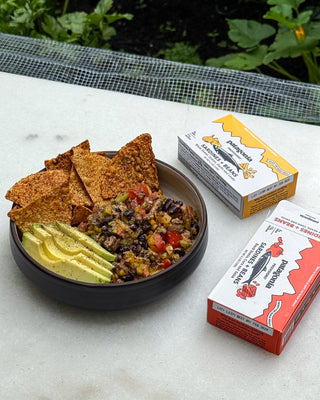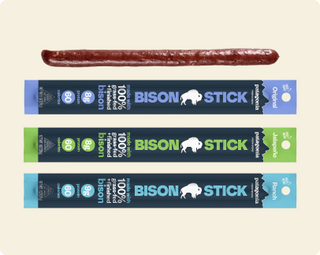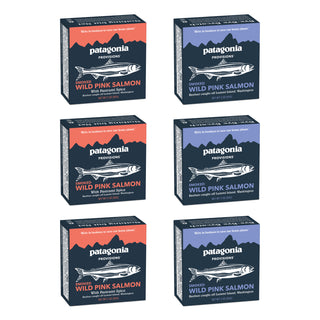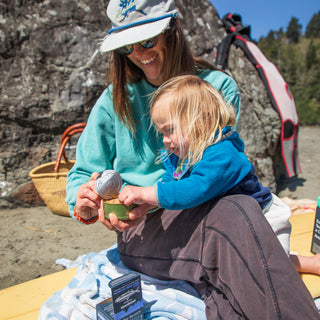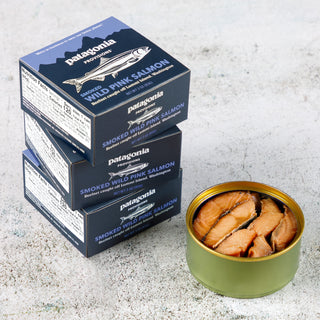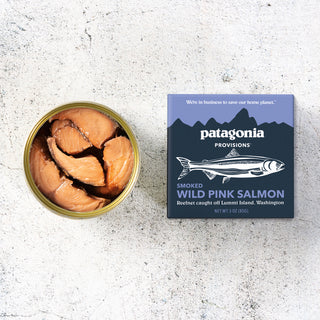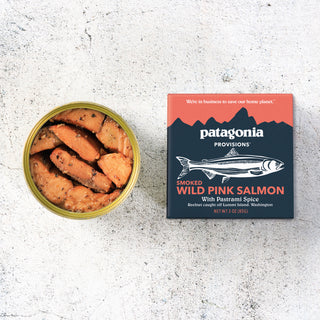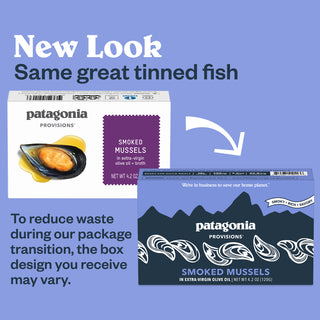“Non GMO Project Verified” is a label that pops up everywhere in grocery stores and supermarkets, and even on our favorite snacks. We've all seen it around, so let’s do a deep dive into what it means.

What Does “GMO” Mean?
Let's break it down. GMO stands for genetically modified organism, and can refer to a plant or an animal. “Bioengineered” is another term to describe these organisms. The modifications are typically done in a lab, using genetic engineering and/or transgenic technology to create an organism that couldn’t have occurred on its own in nature. GMOs are created by humans shaping the natural world according to their desires.
Humans altering nature isn’t new; we’ve been using traditional methods to breed plants and animals for generations. For instance, the first corn on the cob was smaller than a finger. After centuries of selective breeding, we made corn larger, sweeter, and more delicious for humans. Traditional breeding techniques are slow and uncertain, though. Genetic engineering is much faster--a shortcut in natural evolution.
Did you know... that 65 countries require all GMO foods to be labeled? The U.S. requires some GMO foods to be labeled, but not all.
Are GMOs Safe?
It’s a complex topic.
The U.S. scientific community generally agrees that GMOs are safe to eat. However, most studies of human health and GMO safety are conducted by the same biotech companies who make the GMOs, so there’s reason to be skeptical about these studies.
GMO supporters argue that GMOs benefit the environment. Some of these crops are modified to weather the impacts of climate change, including drought, so need less water. Many are altered to resist certain pests and diseases. That means they don’t require pesticides that can poison soil, water and other life, including birds, fish and pollinators.
At Provisions, we source ingredients that are non-GMO because we believe nature knows best. We support regenerative organic farming practices that work with nature, as Indigenous peoples have for millennia.
Did you know... that by 2020, 92% of all corn, the most commonly grown crop in the U.S., was genetically modified?
What Makes Something Non GMO?
A food is non GMO if none of its ingredients were created with genetic engineering.
How Does a Food Company Earn the Non GMO Label?
A Non GMO Project Verified label means the food meets specific standards. Before it qualifies for the label, though, a food must be verified as being non-GMO.
Verification is a multi-step, complex process involving licensing and trademarks as well as a thorough review of ingredients and labeling claims. It takes between three and six months to earn the Non GMO Project Verified certification, depending on variables like the number of ingredients in the product and how likely these ingredients are to be non-GMO.
Each year, the certification must be renewed.

Why Is Non GMO Important for Our Planet?
GMO crops can spread beyond where they are planted and crossbreed with their non-GMO relatives. This can lead to the loss of non-GMO plants, since GMO crops are often modified to be more resilient than their natural counterparts.
The vast majority of all genetically modified crops—80%—have been engineered for herbicide tolerance. This means they can survive when sprayed by herbicides that are used to kill weeds. Herbicides drive habitat loss for wildlife, limit farmland biodiversity and deplete soil health.
Non-GMO crops help prevent all of the above from happening. Ridding our supply chains of GMOs is a vital step toward a healthy food system that supports us and the planet.
Did you know... that GMO crops are responsible for the emergence of pesticide-resistant “superweeds” and “superbugs” that can only be killed with even more toxic substances?

Why Patagonia Provisions Chooses Non GMOs
We’re in business to save our home planet. The jury is still out on how bioengineered foods will impact the natural world over time. But we know beyond a doubt that the toxic herbicides used in GMO crop cultivation harm ecosystems on multiple fronts. We want no part of GMOs for this reason, and we support full labeling of GMO products so customers know what they’re buying.
People often ask why Patagonia, an outdoor clothing company, makes food. It’s pretty simple. In sourcing cotton and other fibers for clothing, we’ve learned how industrial agriculture—a major user of GMOs—threatens and degrades the outdoor places we love. Protecting the earth, and our future on it, means we have to find a better way.
So we source foods that help restore the planet instead of depleting it. We work with organic and regenerative farms that go beyond “sustainable” to steadily improve the health of ecosystems. As our founder Yvon Chouinard says, "People buy a jacket every few years, but they eat several times a day. If we're going to save our home planet, it starts with food."
Common GMO Ingredients to Watch For
Here are some common GMO ingredients to watch out for, especially in processed foods, where they’re most likely to crop up. They’re often genetically engineered unless labeled otherwise.
- Corn
- Soy
- Canola oil
- Cottonseed oil
- Sugar derived from sugar beets (about half of U.S. sugar production is from GMO sugar beets)
- Animal products (95% of animals used for meat and dairy in the United States eat GMO crops like alfalfa)
- Zucchini and yellow summer squash
- Potatoes
- Apples
By keeping an eye out for common GMO ingredients and choosing to buy food that’s labeled non GMO, we can be more confident that we’re not supporting destructive farming practices.
Final Thoughts
We believe eating is activism. By making educated decisions and purchases that benefit the planet, we as consumers have the power to change our future.

